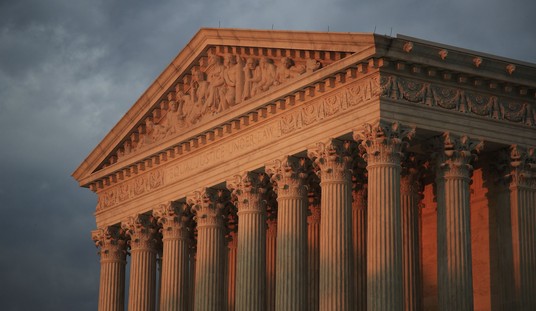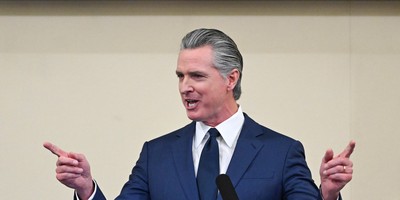By loading trillions in new spending on top of existing health-care entitlements and raising the specter of far less innovation in health care as government’s role in the market grows, ObamaCare represents a serious wrong turn. Yet it’s still possible to salvage one bright spot in the U.S. health-care landscape – Health Savings Accounts – and build on their foundation for more market-oriented reforms in coming years.

HSAs are one of the few truly innovative developments in health-insurance markets in recent years, forcing consumers to make smarter choices about the health-care resources they use. Created as part of the 2003 Medicare Modernization Act, they combine a savings account with a high-deductible insurance plan, giving consumers more control over routine health-care expenses while still providing them with financial protection from catastrophic illness. Since 2006, enrollment in HSAs/HDHPs has more than doubled – from 3.2 million to 8 million.
Critics allege that these plans only cater to the healthy and wealthy, but data suggests otherwise. According to a May 2009 survey from AHIP, an insurance trade group, 53 percent of all HSA enrollees in the individual market were age 40 or older. A 2007 survey found that 33 percent of HSA account holders in the individual market were formerly uninsured. In another study of over 1 million HSA accounts, AHIP found that 46 percent of account holders lived in lower-middle income neighborhoods, with incomes between $25,000 and $50,000. In total, 83 percent lived in neighborhoods where the income was at or below $75,000.
A February 2009 study from the Manhattan Institute also found that HSA account holders spent less than half of the money in their accounts in 2007, showing that HSAs can be an effective savings vehicle for offsetting future health-care costs.
But the biggest attraction for HSA-qualified health plans is clearly their lower cost. The MI study also found that premiums for HSA plans are much less expensive – by ten to 40 percent – than more traditional insurance options. The vast majority of these plans (86 percent) also offered generous “first-dollar” coverage for preventive-care services like infant/child well care, colonoscopies, immunizations, mammograms, and pap smears.
Recommended
Unfortunately, obscure details buried deep in the Democrats’ legislation – or left up to the future discretion of bureaucrats in the Department of Health and Human Services – could easily kill HSAs with the stroke of a pen.
The key issue is what counts as “qualified” health insurance. Much will depend on whether future regulators will count HSA contributions by employers towards the “actuarial value” of the plan (the percentage of health-care costs insurance has to cover). In the current Senate bill, for instance, the minimum actuarial value for a qualified plan that can be sold through the new state health exchanges is 60 percent; in the House version, 70 percent.
If these figures hold, and if employer contributions count towards the full actuarial value, HSAs would survive and compete in the new health exchanges. (According to a 2009 report from the Congressional Research Service, the typical actuarial value for an employer based HSA is 76%; 93% if the employer contribution is counted.)
Right now, however, the language in the bills is vague. If the actuarial minimum goes up and employer contributions don’t count towards the full value, HSAs could fail to meet minimum standards and be banned overnight.
Another potential poison pill in the legislation is the imposition of very high medical-loss ratios. The House bill, for instance, requires qualified insurers to spend 85 cents of every premium dollar collected paying out claims. The Senate bill sets a cap of 20% (for the group market) and 25% (for the individual market) on non-claims related costs. If HSA- eligible plans have to spend more money on claims to meet these minimums, they’d be much more expensive and much less attractive to policyholders.
And there are other arcane regulations that could easily kill HSAs, many of them invisible to consumers until it’s too late.
The irony is that the legislation could drive massive HSA enrollment, albeit unintentionally. The House and Senate versions both mandate that the uninsured buy health insurance (often with government subsidies), and create exchanges where they can compare and shop for plans. For many of the uninsured, HSAs would be the best low-cost option, potentially saving them thousands of dollars in premium costs annually. The result would be a boon for HSA-qualified plans, assuming they’re not regulated out of existence.
Indeed, Roy Ramthun, one of the architects of HSAs in the 2003 legislation, sees this as one of the few bright spots in the legislation: “Millions of Americans would end up choosing their own health plan rather than having their employer choose it for them,” he said. “When people see what their health insurance actually costs, instead of having the cost hidden from view, I believe more of them will choose an HSA plan because it will provide better value for their premium.”
Of course, none of this will be possible if the current vaguely worded legislation is not amended to provide clear protections for HSAs. Any legislation that weakens HSAs will have the net effect of driving health-care costs up. Without better and clearer protections, millions of Americans could lose HSAs they have and like today, and millions more could find themselves paying much higher insurance premiums for coverage they don’t want or need. And that would be the opposite of what President Obama says he wants: lower health-care costs through greater transparency, competition, and choice.
























Join the conversation as a VIP Member